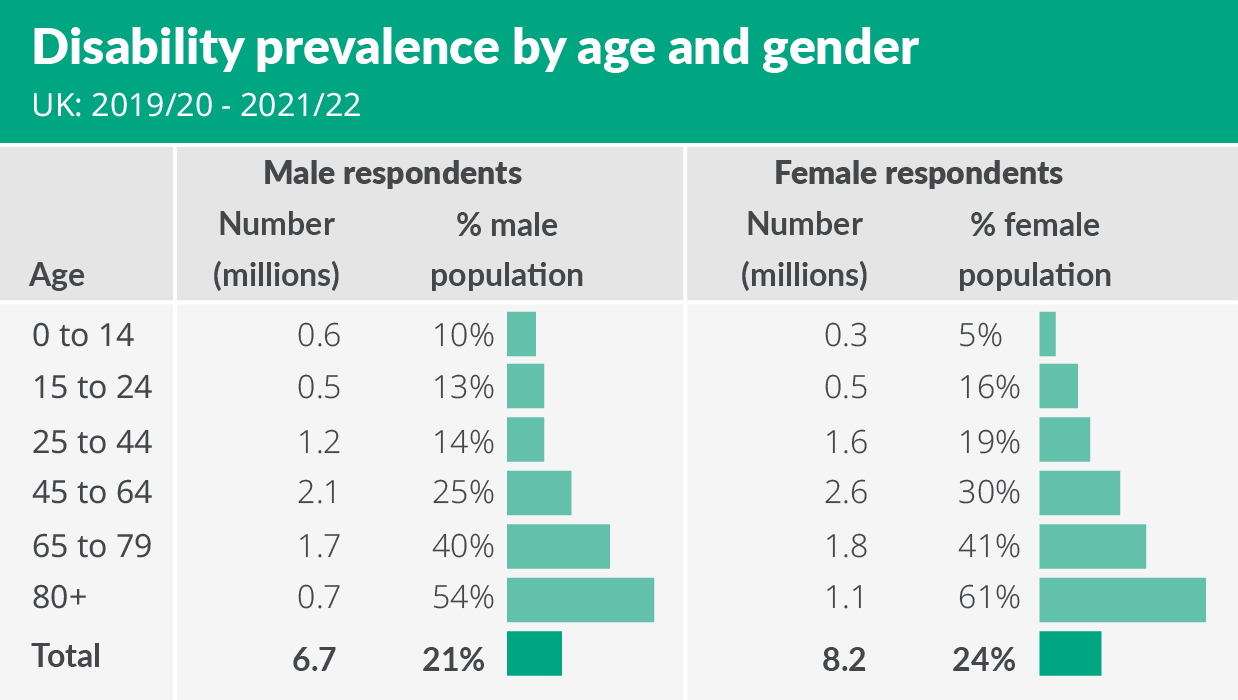How mCare supports care providers and helps make the delivery of person-centred care simple

The United Nations (UN) General Assembly launched the awareness day' International Day of Persons with Disabilities' (IDPWD) in 1992, which takes place every year on 3rd December.
The day aims to "promote an understanding of disability issues and mobilise support for the dignity, rights and wellbeing of persons with disabilities. It also seeks to increase awareness of gains to be derived from the integration of persons with disabilities in every aspect of political, social, economic and cultural life".
Helping to raise awareness
What is the definition of disability under the Equality Act 2010?
The Equality Act 2010 defines disability as a physical or mental impairment that has a 'substantial' and 'long-term' negative effect on your ability to do normal daily activities.
What does 'substantial' and 'long-term' mean?
The Act defines 'substantial' as being more than minor or trivial, e.g., if it takes much longer than it usually would to complete a daily task like getting dressed. 'Long-term' is defined as lasting 12 months or more, for example, a breathing condition that develops as a result of a lung infection.
A few facts on disability
The World Health Organisation (WHO) reports that:
- An estimated 1.3 billion people experience significant disability - this represents 16% of the world's population or 1 in 6 of us.
- The global prevalence of persons with disabilities is increasing substantially. This increase is due to demographic and epidemiological changes in the population (such as ageing and the global increase in chronic health conditions) and health emergencies (such as disease outbreaks, natural disasters, and conflicts.
- Health inequities - many persons with disabilities experience poor health outcomes and face barriers to accessing health services.
UK disability statistics
According to a report by the UK House of Commons, an estimated 16 million people in the UK had a disability in the year 2021/22. This number represents 24% of the total population. As of February 2023, 6.3 million people in Great Britain claimed an extra-cost disability benefit, which makes up 9.6% of the total population.
Mobility was the most commonly reported type of impairment, accounting for 47% of the cases. Stamina, breathing, or fatigue were the second most frequently reported types (35%), followed by mental health (32%).
The prevalence of disability rises with age:

It's important to note that in the UK, there is currently no national register of people with disabilities. Although some local authorities run voluntary registers in their areas, registration is not compulsory, which means that this information is not useful in providing an accurate estimate of the number of individuals with a disability or their specific characteristics.
Disability and the social care system
According to a recent report published by the Authority of the House of Lords, many adults with a disability and older people in the social care system continue to be denied choice and control over their lives - this is due to a number of issues but largely because of the lack of resources.

The report also stated that "while the Equality Act 2010 protects people from discrimination or unfair treatment on the basis of certain personal characteristics, which include age and disability, it does not always hold in practice."
Recognising that everyone has different needs, preferences, and abilities
Why person-centred care is important

A person-centred approach is about placing the person being cared for at the heart of care and doing everything possible to put their needs first. It involves the individual in their own care rather than relying solely on the decisions made by health and care professionals and helps to emphasise shared decision-making, where the individual is regarded as an equal partner in their care.
It's crucial to have the individual's best interests at heart and do what you can to maintain or improve their wellbeing while taking their preferences, needs, and values into account when making clinical decisions. By providing respectful and responsive care tailored to their unique circumstances, interests, and lifestyles, you can ensure that the person receiving care remains the central focus of the care process.
The Care Quality Commission (CQC) states that:
"True person-centred care is key to ensure that people can live the lives they want. It is about ensuring that people, their families and advocates are listened to and involved in planning their care and support. It is about treating them with respect and as equal citizens. This is key to ensuring that people receive the right support at the right time".
To coincide with #InternationalDayOfPersonsWithDisabilities, Person Centred Software discusses how its digital social care record system, mCare, supports carers and helps make the delivery of person-centred care simple.
At Person Centred Software, we are firm believers in person-centred care and believe that every person, regardless of whether they have a disability or not, has the right to live an ordinary life. Health and social care providers must ensure everyone has choices, dignity, independence and good access to local communities.
Providing person-centred care is a recognised requirement by all the UK's national regulators.
Creating a fairer, kinder, more dignified and more sustainable adult social care system for all
Our Connected Care Platform, a suite of integrated solutions that cover the entire spectrum of care management, help to make the delivery of person-centred care simple for care providers and improve the lives of those receiving care.
For example, our digital social care record system, mCare, has a number of features which help care providers deliver a more person-centred approach:
- mCare's Person-centred Care Plans feature helps care teams to make person-centred care planning easier to implement and maintain, supporting care staff to be fully aware of each resident's care needs.
- When using mCare, care staff can truly personalise care with the system's Person Centred Interactions feature - all interactions revolve around the person being cared for. mCare also includes features such as Who I Am and Plan Care Day, which allow care staff to tailor their approach and provide personalised care based on the individual's preferences and needs.
- With the 'Goal Tracking and Outcomes' feature, care staff can support residents with their goals and keep track of the progress towards meeting them. Having this capability allows for a person-centred approach to caring and fulfilling goals. For instance, when an older adult is discharged from the hospital and enters a care home for the first time, the goal may be to ensure their initial day in the care home is peaceful and comfortable.

To view all the features of mCare, click here.
Click here to for more information on person-centred care.
Start your digital journey with Person Centred Software today.
Our Connected Care Platform is an all-in-one cloud-based care management platform that covers the full spectrum of care management through integrated solutions that help drive outstanding care and improve the lives of those receiving care and those working in the sector.




.png)

.jpg)
.webp?width=80&height=80&name=HTD%20Awards%202023%20Badge%20(4).webp)














